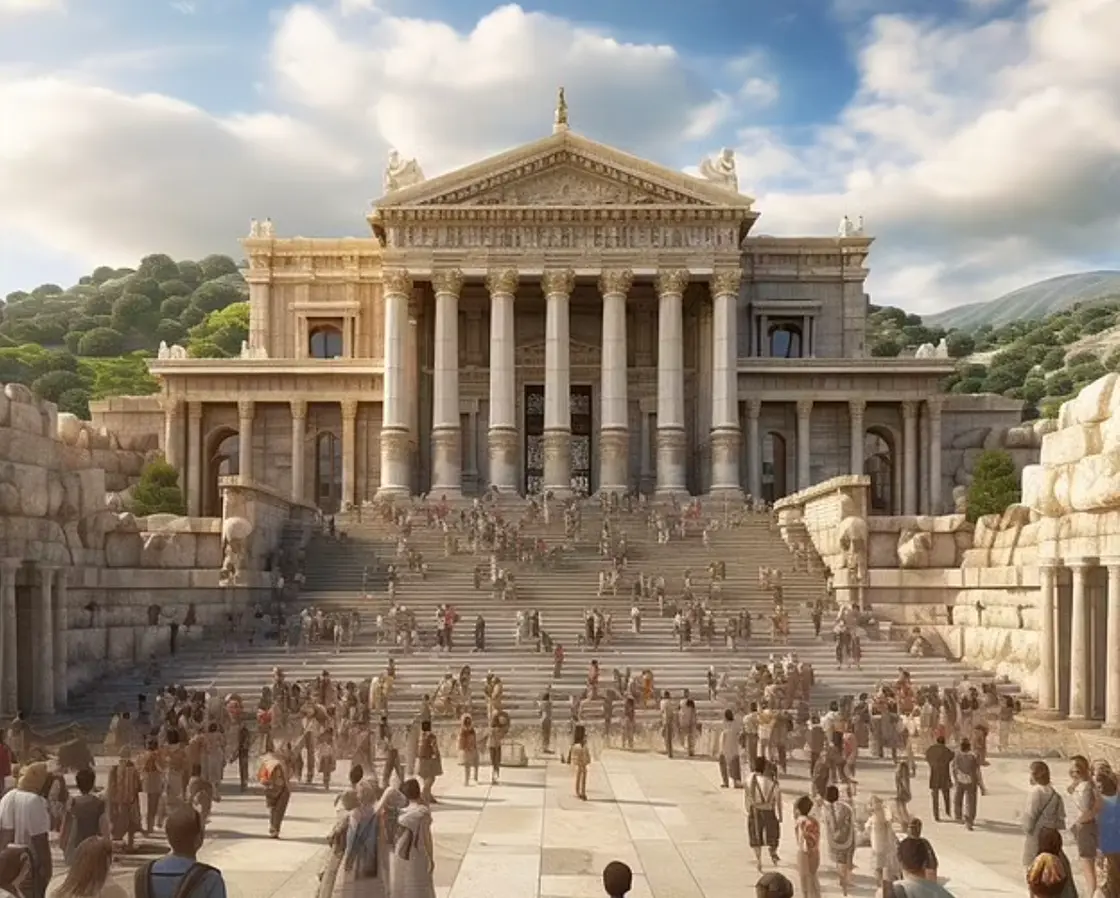Reviving Antiquity through AI: A Glimpse into the Original Splendor of the World’s Ancient Wonders
In an astonishing fusion of technology and history, artificial intelligence has reimagined the Seven Wonders of the Ancient World as they might have appeared in their prime. This innovative approach, using a program like Midjourney, offers a unique window into the architectural marvels of bygone civilizations.

Mayan city (iStock)
The Colossus of Rhodes:
This towering bronze statue, depicting the Greek Sun God Helios, once stood a staggering 100 feet above the sea. A masterpiece of engineering and construction, it took 12 years to complete before its destruction in an earthquake, less than a century after its completion in 282 BC.
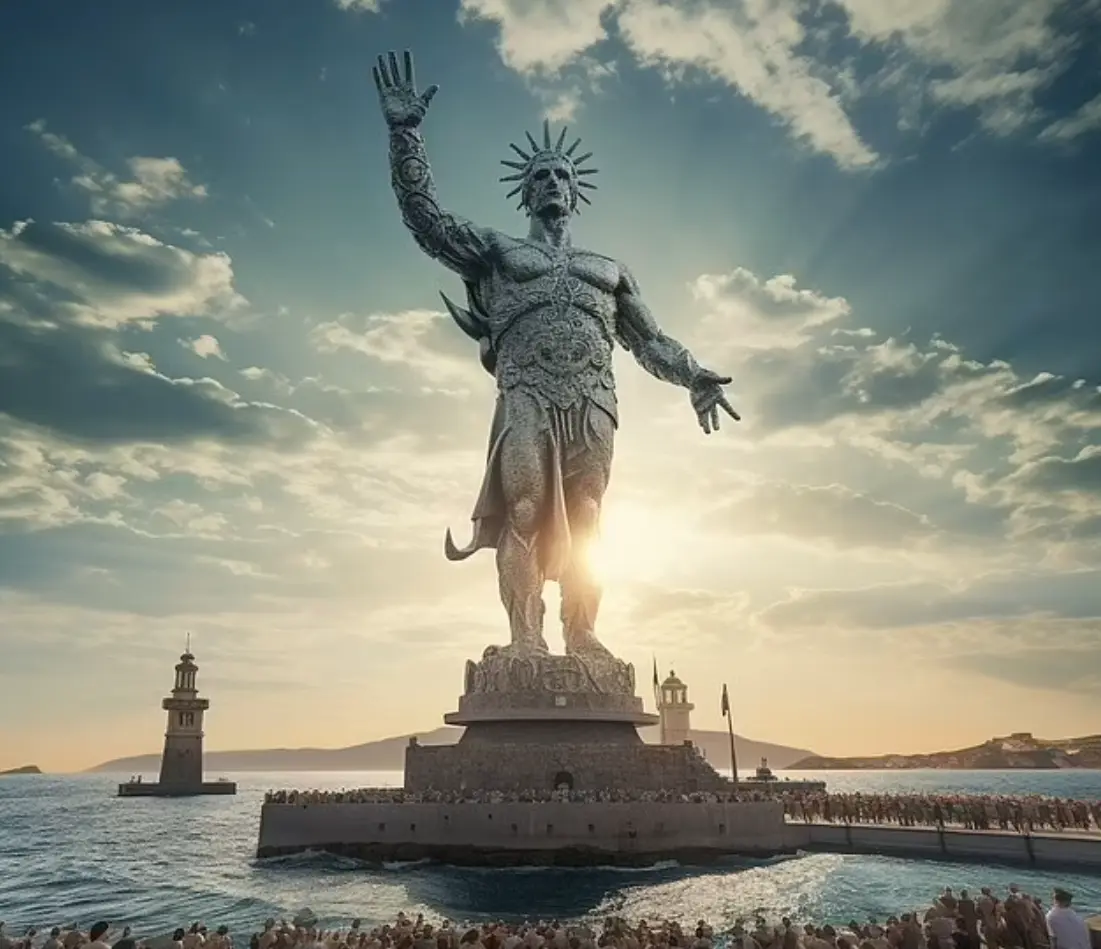
The Great Pyramid of Giza:
Among the ancient wonders, the Great Pyramid of Giza is a rare survivor. The AI reconstruction reveals its original appearance, adorned with shiny white limestone, lost over millennia. This architectural feat was accomplished over 20 years under the reign of Pharaoh Khufu.
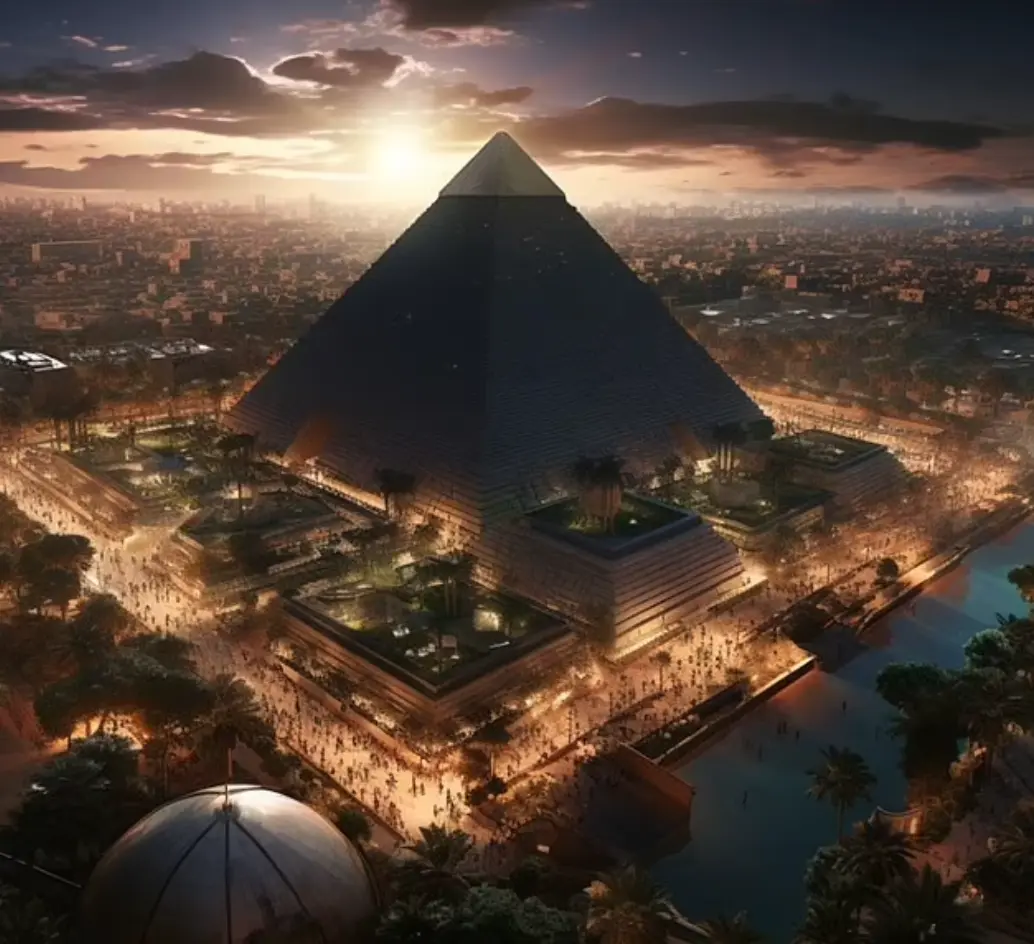
The Hanging Gardens of Babylon:
These fabled gardens, as per ancient texts, were a marvel of terraces, water features, and floating plants. Believed to have been established around 600 BC, they would have stood 65 feet high, though their existence is still shrouded in mystery.
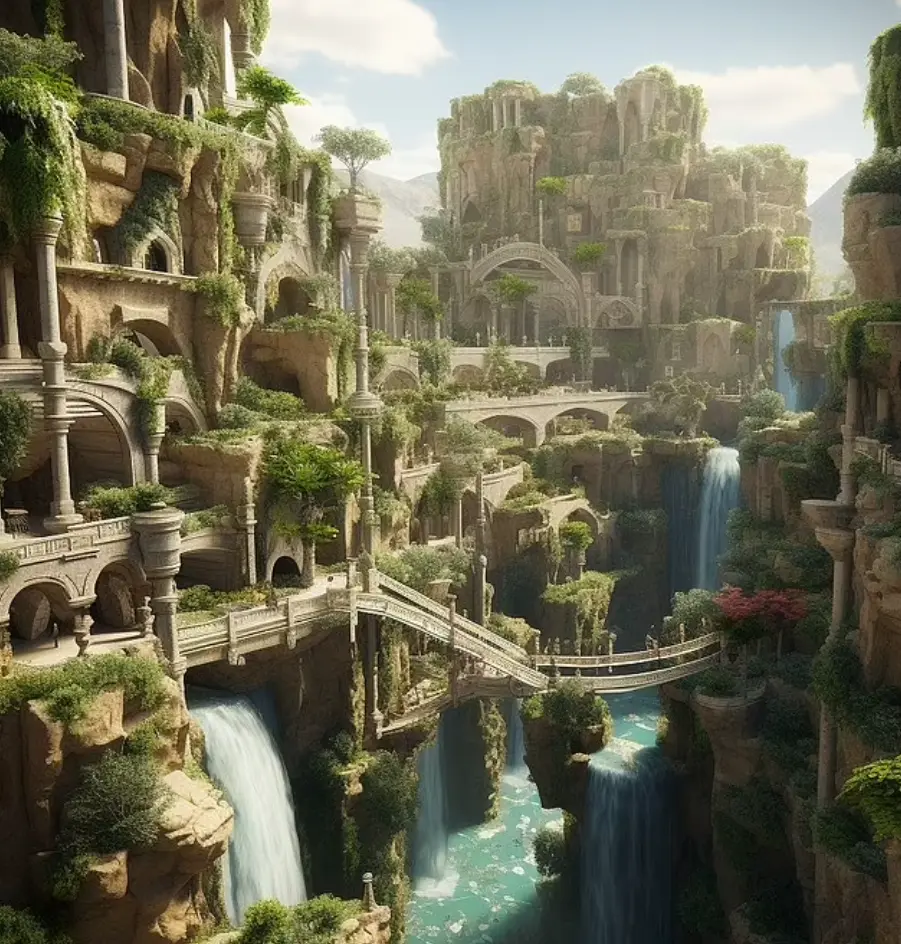
The Statue of Zeus at Olympia:
The AI imagination brings to life the 40-foot-tall ivory statue of Zeus, situated in a temple. Historical records indicate its destruction in a fire in Constantinople in 426 AD.
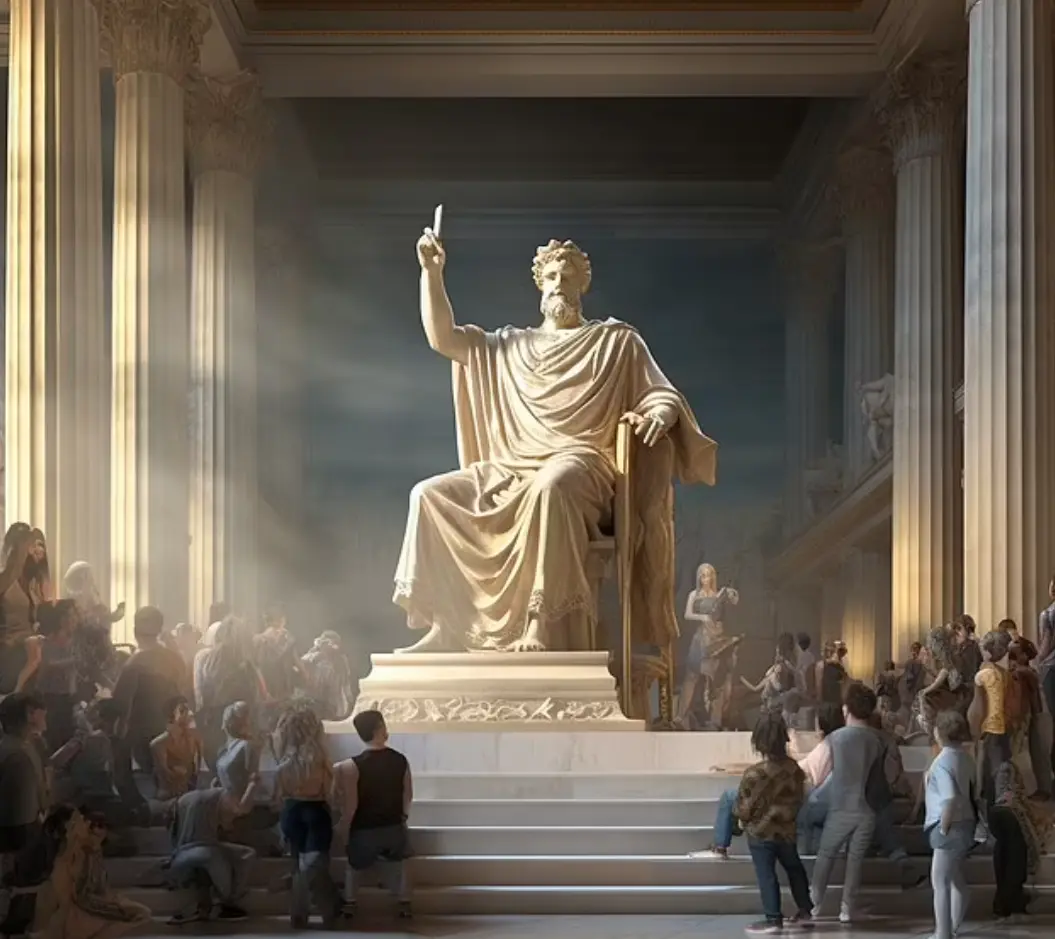
The Lighthouse of Alexandria:
This AI recreation breathes life back into one of the most famous ancient lighthouses, which stood over 350 feet tall on the island of Pharos in ancient Egypt. Its intricate design fell to ruins due to successive earthquakes in the Middle Ages.
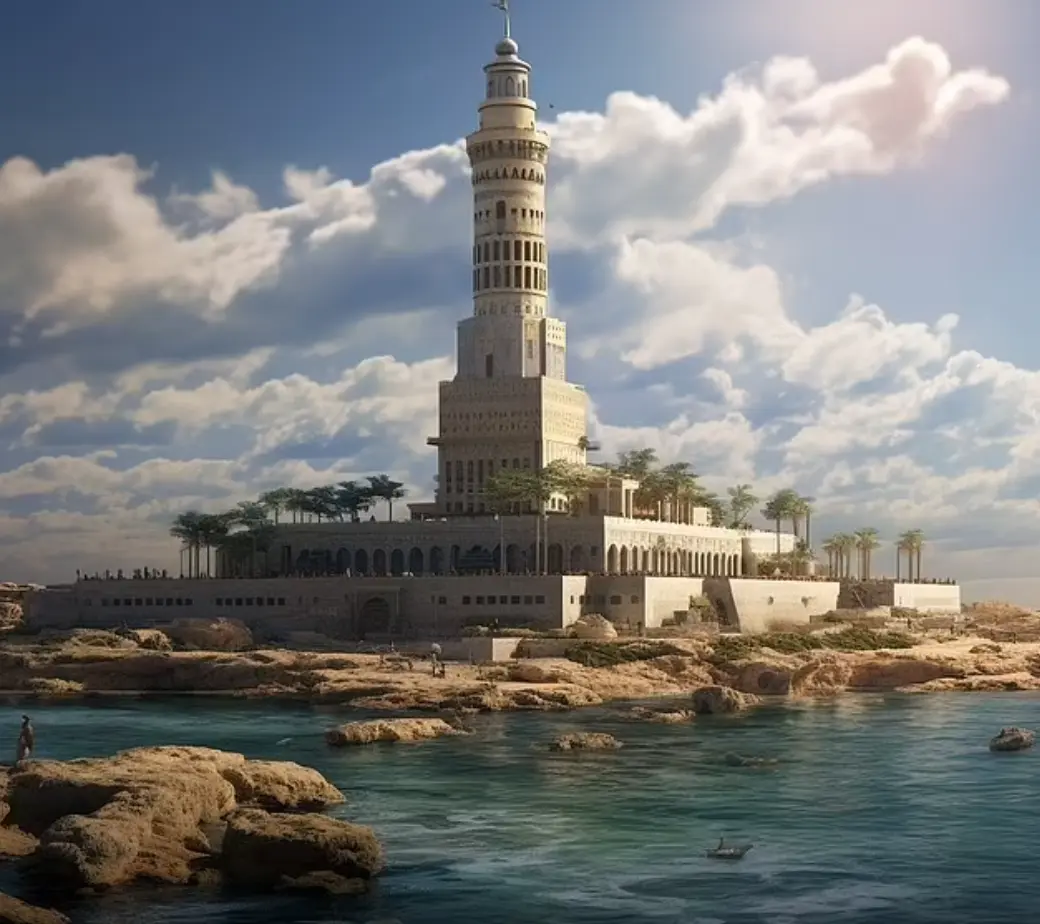
The Mausoleum at Halicarnassus:
Located in modern-day Turkey, this tomb of Mausolus, the ruler of Caria, was a blend of Greek, Near Eastern, and Egyptian design principles, constructed in Anatolian marble. It was destroyed by a series of earthquakes in the 13th century.
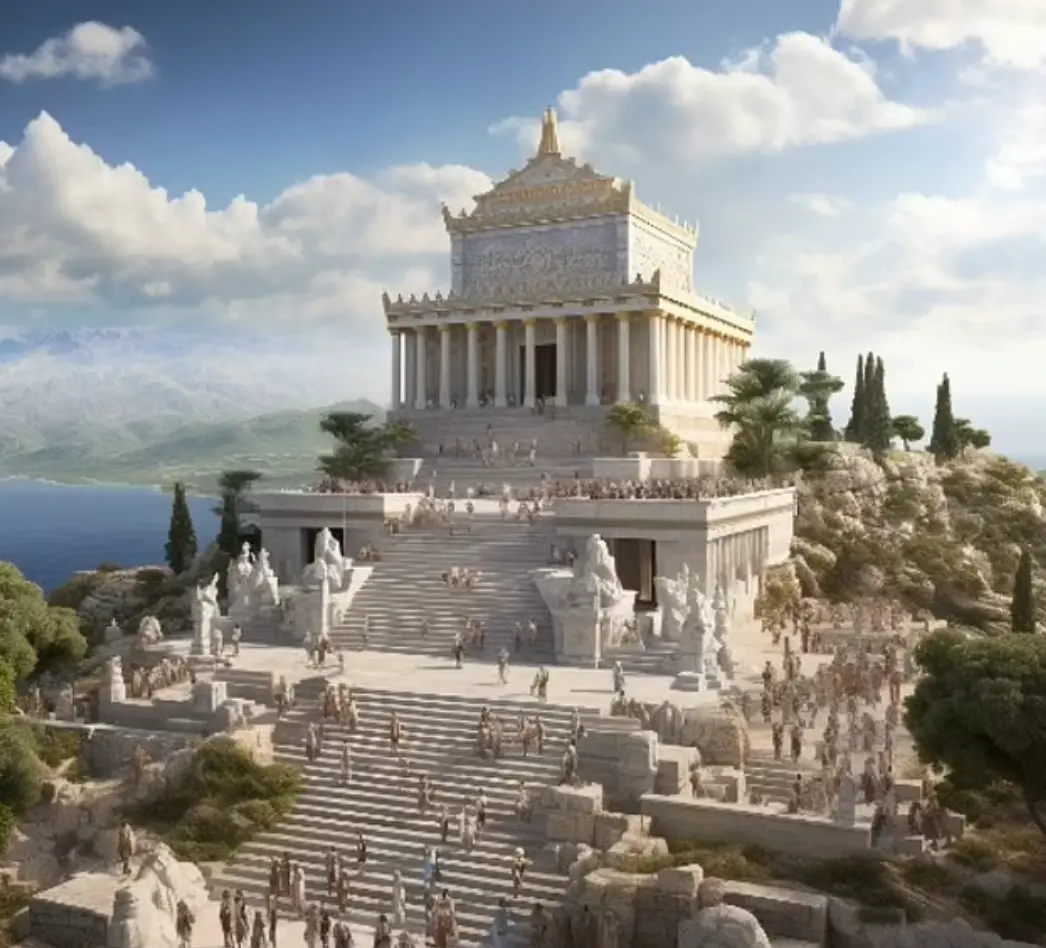
The Temple of Artemis:
Finally, the AI vision of the Temple of Artemis, dedicated to the Greek goddess of chastity, hunting, wild animals, forests, and fertility. This structure was built and destroyed three times, with only foundations and a single column remaining, visible today in Izmir, Turkey.
